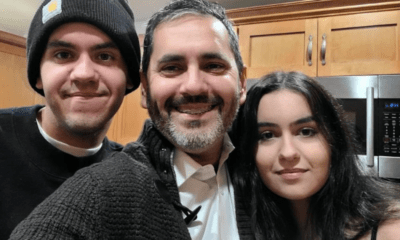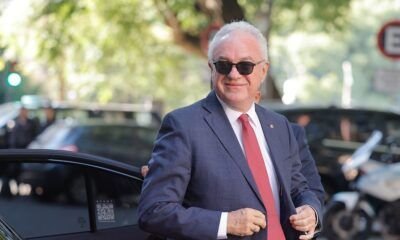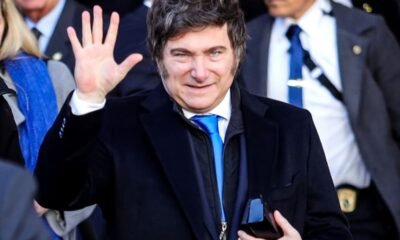INTERNACIONAL
“Cansado, desgastado y estresado”: así estaba el uruguayo liberado en Venezuela tras nueve meses preso
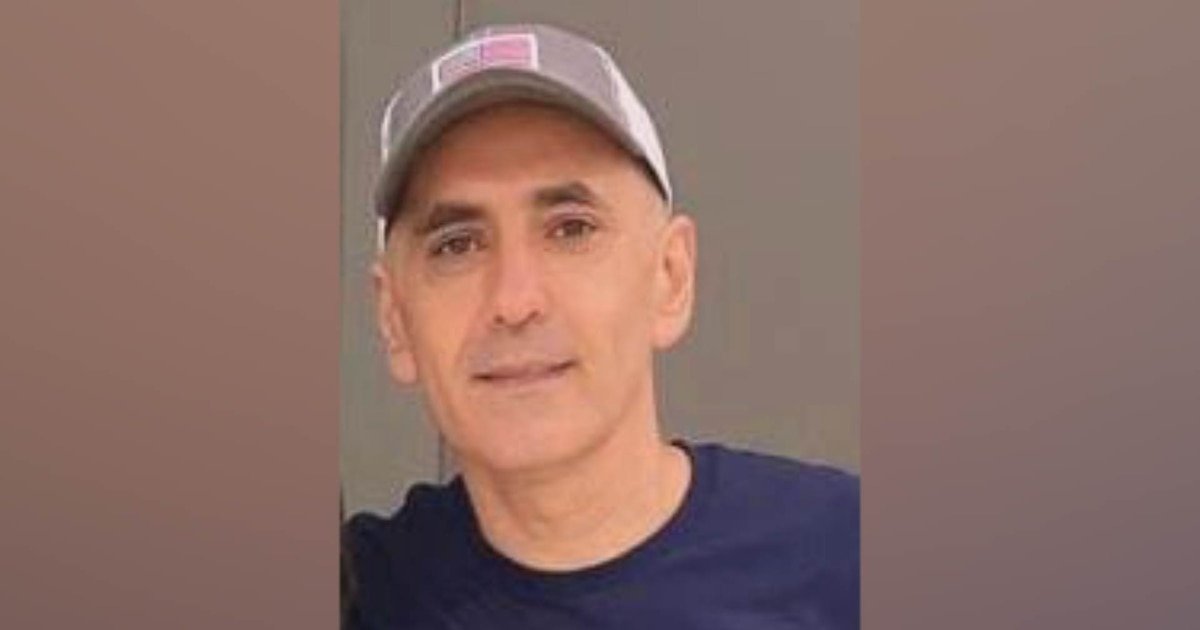
El uruguayo-estadounidense Fabián Buglione pudo verse por primera vez después de muchos meses en un espejo este viernes, después de su liberación tras ser detenido por la dictadura venezolana. Se notó flaco y desgastado. El canciller uruguayo Mario Lubetkin informó tras su liberación que el hombre se encontraba “cansado, desgastado y estresado” después del cautiverio que vivió en un país al que llegó el 19 de octubre, cuando fue detenido.
Buglione, de 48 años, había llegado ese 19 de octubre a Venezuela, hace exactamente nueve meses. Y, desde entonces, comenzaron las gestiones del gobierno uruguayo (primero con Luis Lacalle Pou como presidente y luego con Yamandú Orsi) y los intentos por conocer información sobre el paradero de Buglione. Hubo algunos datos que se conocieron: la información oficial es que estaba en la cárcel de El Rodeo 1, en el estado de Miranda, adonde el régimen de Nicolás Maduro ha enviado a varios presos políticos.
El gobierno de Estados Unidos fue el que negoció para liberar a Buglione, dado que hace casi 30 años que el uruguayo vive en Nueva York. Es residente y tiene su familia allí: tiene dos hijos y la madre de ambos vive en ese país. El uruguayo-estadounidense, por tanto, cuenta con green card.

Su pareja, Margelis Piña, contó a Montevideo Portal que el primer llamado que recibió de Buglione fue el viernes 18, después de la liberación, y aseguró que estuvieron hablando hasta las cinco de la mañana. Por la noche, el uruguayo-estadounidense libertado ya estaba en Colombia, en la embajada uruguaya en ese país.
Otro de los llamados que recibió de su pareja fue este sábado en la mañana, antes de viajar a Estados Unidos. “Ahora está sin teléfono y va a reencontrarse con los demás liberados. Allá le van a hacer las pruebas médicas, psicológicas y el papeleo de ingreso”, contó la mujer. El hombre estará unos días sin teléfono y sin comunicación.
“En términos generales, él está bien. Obviamente está muy cambiado físicamente. Es otro, pero sigue siendo el mismo. No ha perdido el sentido del humor y está bien”, relató la mujer. En las capturas que mostró, se ve al hombre delgado y completamente rapado.
Entre sus planes está volver a verse y tienen cita para agosto de este años en Estados Unidos.
La liberación de Buglione fue anunciada por el canciller Lubetkin, el viernes por la tarde. “Les anuncio con felicidad la liberación del ciudadano uruguayo Fabián Buglione. Fue esta tarde, en Venezuela”, escribió el ministro. “Agradezco a todas las personas que hicieron posible esta buena noticia para todas y todos los uruguayos”, agregó.

Para el día siguiente, convocó a una conferencia de prensa en la que aseguró que Uruguay no participó de “ninguna negociación de ningún tipo de intercambio de prisioneros” –como el que anunció Maro Rubio–, pero sí que estableció un canal de cooperación con Estados Unidos.
El canciller contó, según consignó El País, que el jueves 17 recibió una llamada de las autoridades de Venezuela anunciando la liberación de Buglione, en la que además le pedían un avión para retirarlo del país. “Le explicamos que nuestro país no tiene avión presidencial, como tienen la inmensa mayoría de los países de América Latina y del mundo”, relató. Esto complicó el proceso, pero de todas maneras se acordó enviar a diplomáticos uruguayos en Colombia para recibir a Buglione.
El uruguayo decidió dirigirse a Estados Unidos, donde está su familia, detalló Lubetkin. Allí “tiene muchos temas pendientes, luego de todos estos meses de detención”. Con la Cancillería acordaron que, luego de “reordenar su vida y encontrarse con su familia”, va a viajar a Uruguay.
Fue entonces que Lubetkin describió que se encontró a una persona “cansada, estresada y desgastada” y aseguró que Buglione le pidió saludar a la población del país “por toda la sensibilidad que hubo alrededor de su caso y de su detención en Venezuela”.
corresponsal: Desde Montevideo
INTERNACIONAL
La Universidad de Harvard busca recuperar miles de millones de dólares por los recortes de fondos impuestos por Donald Trump
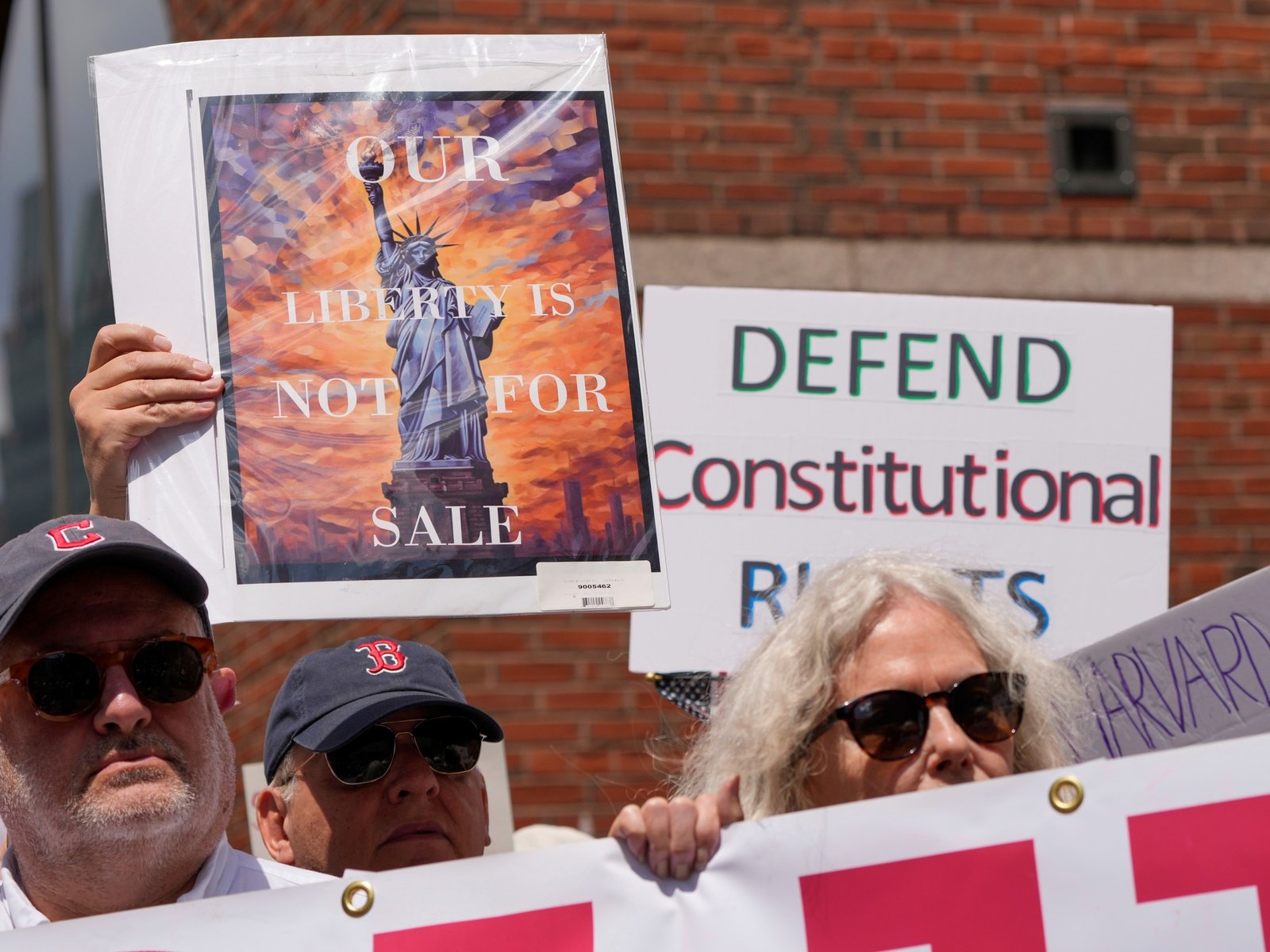
La jueza cuestiona la base de los hallazgos del gobierno sobre antisemitismo
INTERNACIONAL
FBI botched investigation into Hillary Clinton’s emails, declassified documents allege
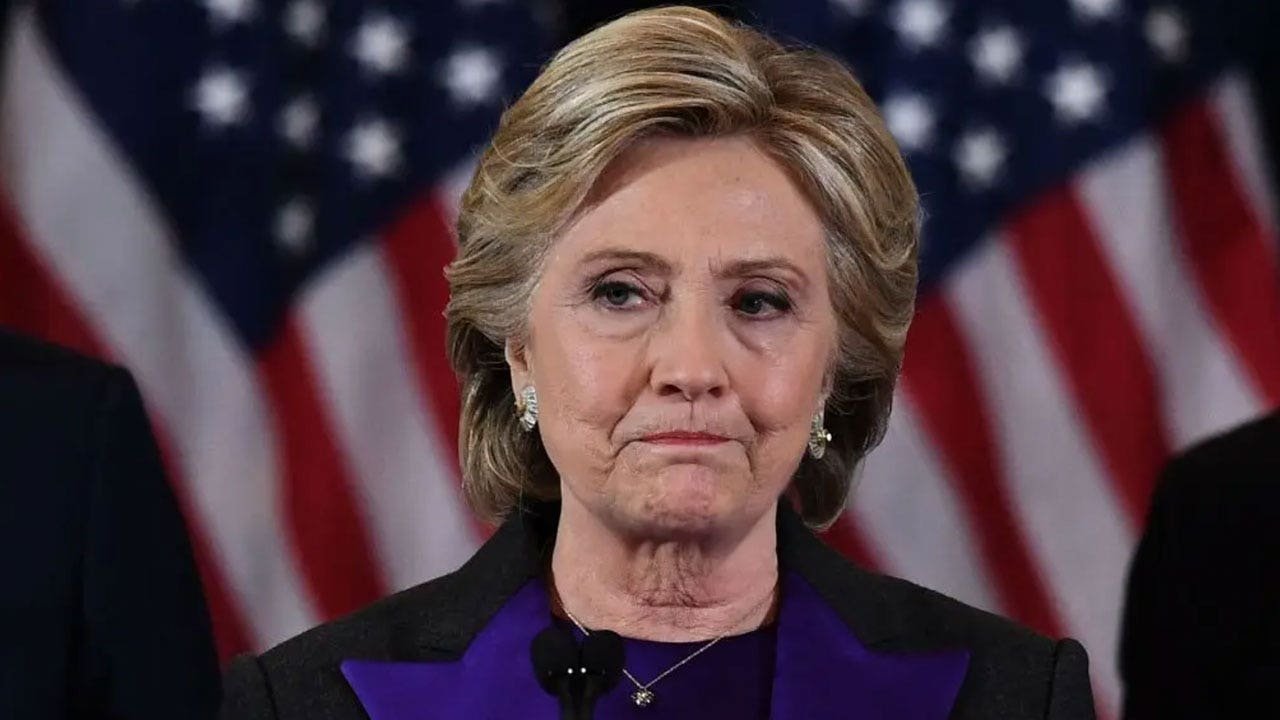
NEWYou can now listen to Fox News articles!
Senate Judiciary Committee Chairman Chuck Grassley released declassified documents related to the FBI’s investigation into former Secretary of State Hillary Clinton’s private email server when she served in the federal government, revealing the FBI reportedly «failed to fully investigate» the matter.
«This document shows an extreme lack of effort and due diligence in the FBI’s investigation of former Secretary Clinton’s email usage and mishandling of highly classified information,» Grassley said in a Monday press release.
«Under Comey’s leadership, the FBI failed to perform fundamental investigative work and left key pieces of evidence on the cutting room floor,» he continued. «The Comey FBI’s negligent approach and perhaps intentional lack of effort in the Clinton investigation is a stark contrast to its full-throated investigation of the Trump-Russia collusion hoax, which was based on the uncorroborated and now discredited Steele dossier. Comey’s decision-making process smacks of political infection.»
Clinton, who served as former President Barack Obama’s secretary of state from 2009 to 2013, was investigated by the FBI over claims she improperly stored or transmitted classified materials on a private email server. The FBI advised the Department of Justice in 2016, ahead of that year’s massive election that pitted Clinton against future President Donald Trump, that Clinton should not face prosecution over the matter.
OBAMA OFFICIALS ADMITTED THEY HAD NO ‘EMPIRICAL EVIDENCE’ OF TRUMP-RUSSIA COLLUSION: HOUSE INTEL TRANSCRIPTS
Senate Judiciary Committee Chairman Chuck Grassley released declassified documents related to the FBI’s investigation into former Secretary of State Hillary Clinton’s private email server and handling of classified materials. (Jewel Samad/AFP via Getty Images)
«Although there is evidence of potential violations of the statutes regarding the handling of classified information, our judgment is that no reasonable prosecutor would bring such a case,» then-FBI director James Comey said in a press release. «Prosecutors necessarily weigh a number of factors before bringing charges. There are obvious considerations, like the strength of the evidence, especially regarding intent. Responsible decisions also consider the context of a person’s actions, and how similar situations have been handled in the past.»
OBAMA OFFICIALS USED DOSSIER TO PROBE, BRIEF TRUMP DESPITE KNOWING IT WAS UNVERIFIED ‘INTERNET RUMOR’
Grassley specifically released declassified materials from the «Clinton annex,» which is an appendix to the Department of Justice Office of Inspector General’s 2018 report that reviewed the DOJ and FBI’s handling of the Clinton investigation. Attorney General Pam Bondi, and other Trump administration leaders at other agencies, declassified the materials and delivered them to Grassley at his request, his press release reported.
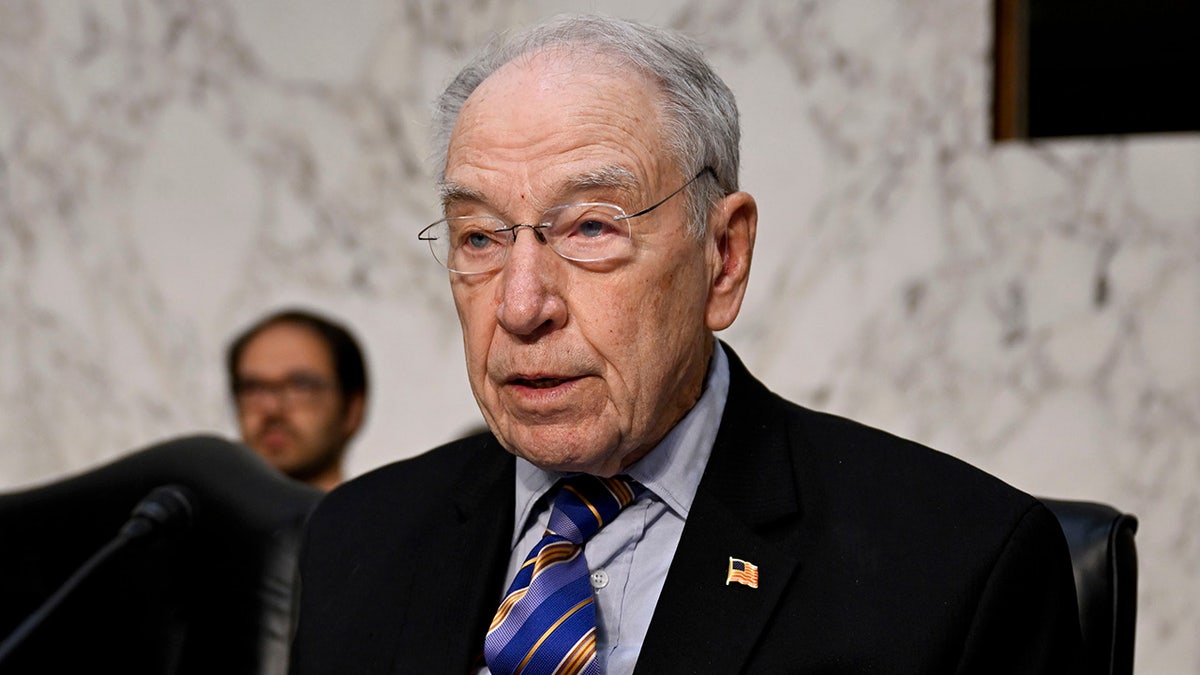
Senator Chuck Grassley reported July 21, 2025, that there was an «extreme lack of effort and due diligence in the FBI’s investigation of former Secretary Clinton’s email usage and mishandling of highly classified information.» ( Daniel Heuer/Bloomberg via Getty Images)
The documents claim that then-FBI Director Comey, as well as other FBI leaders, obtained thumb drives related to their investigation into Clinton, but that the agency failed «to perform additional, targeted searches of the drives,» according to Grassley’s office.
FBI LAUNCHES CRIMINAL INVESTIGATIONS OF JOHN BRENNAN, JAMES COMEY: DOJ SOURCES
The thumb drives reportedly were never reviewed during the investigation, but «contained highly sensitive information exfiltrated from U.S. government agencies, including the Department of State, as well as then-President Barack Obama’s emails and, potentially, congressional information.»
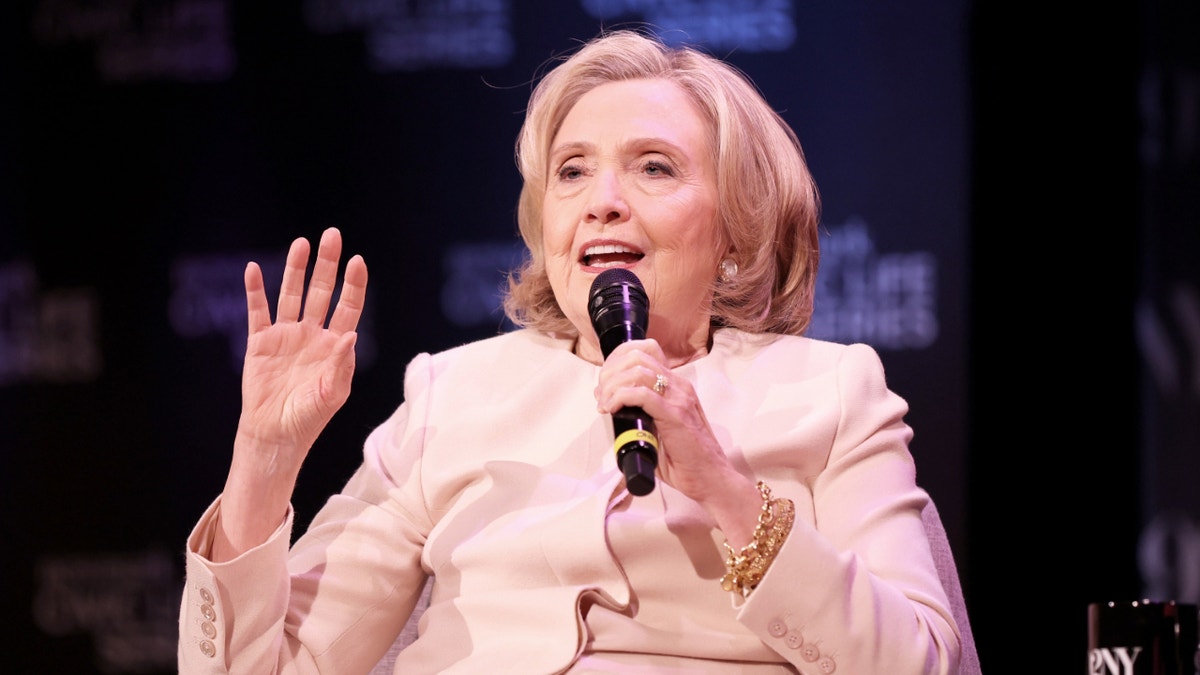
Former presidential candidate Hillary Clinton’s email server is back on the nation’s radar following Sen. Grassley releasing declassified documents. (Getty Images)
The FBI also obtained intelligence that alleged communications between Florida Democrat Rep. Debbie Wasserman Schultz, who served as Democratic National Committee chair until July 2016 when she resigned, and individuals who worked for the Soros Open Society Foundations, which was founded by left-wing billionaire donor George Soros.
GRASSLEY EXPOSES FBI USE OF BIASED SOURCES IN ANTI-TRADITIONAL CATHOLIC MEMOS UNDER BIDEN ADMINISTRATION
«The intelligence reports alleged that the Obama administration took efforts to scuttle the investigation into Clinton and protect her candidacy,» Grassley’s release reported, but that the FBI at the time did «not make serious investigative efforts» into the intelligence reports.
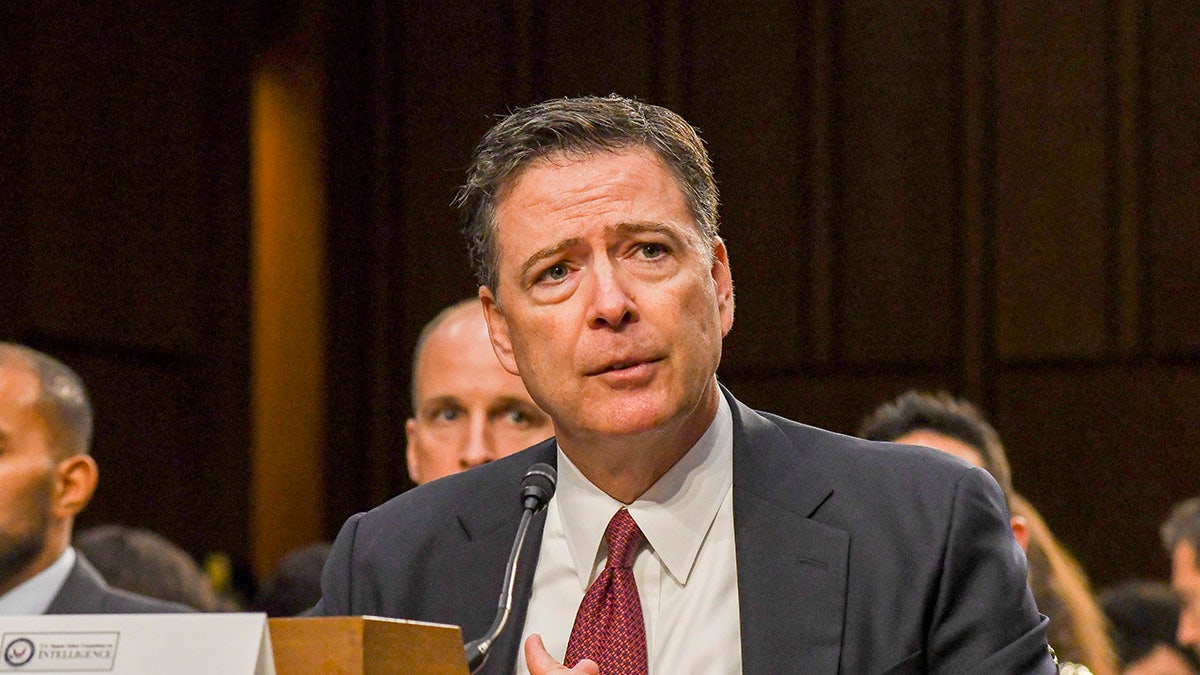
James Comey oversaw the FBI amid its investifation into Hillary Clinton’s emails. (Mark Reinstein/Corbis via Getty Images)
Fox News Digital reached out to Clinton’s office, Wasserman Schultz’s office, the Soros Open Society Foundations and the Kettering Foundation, where Comey currently works as a senior fellow, for comment on Grassley’s release, but did not immediately receive replies.
«I warned years ago that the Clinton investigation failed to hit the mark, and I’m grateful the American people can finally see the facts for themselves,» Grassley said in the press release. «After nearly a decade in the shadows, this information is now coming to light thanks to Attorney General Pam Bondi and FBI Director Kash Patel’s dedicated efforts to fulfill my congressional request.
«I appreciate their ongoing commitment to transparency and strongly urge them to continue to fully review this matter, including its national security impact,» he said.
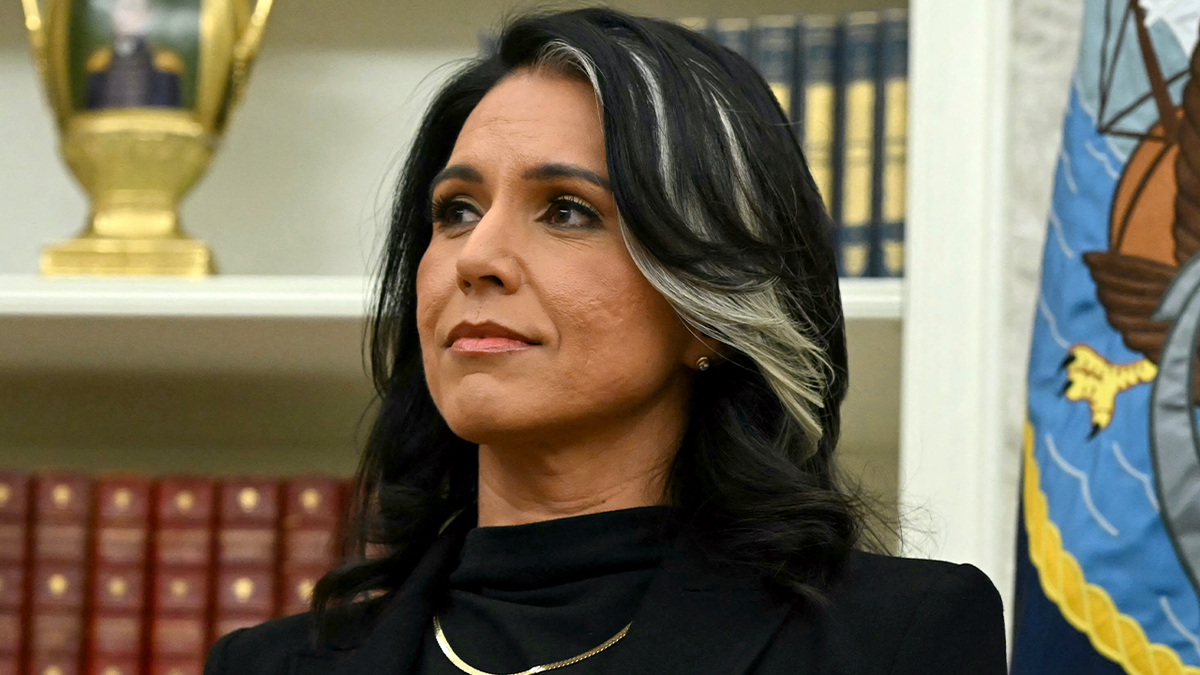
DNI Tulsi Gabbard revealed Obama-era officials allegedly «manufactured and politicized intelligence» to create the narrative that Russia was attempting to influence the 2016 presidential election. (Andrew Caballero-Reynolds/AFP via Getty Images)
Grassley’s release follows Director of National Intelligence Tulsi Gabbard’s bombshell claims that Obama-era officials reportedly «manufactured and politicized intelligence» to create the narrative that Russia was attempting to influence the 2016 presidential election.
Gabbard released unclassified documents Friday that reportedly show «overwhelming evidence» that then-President Obama and his national security team laid the groundwork for what would be the yearslong Trump-Russia collusion probe after Trump’s election win against Clinton in 2016.
CLICK HERE TO GET THE FOX NEWS APP
«Their goal was to usurp President Trump and subvert the will of the American people,» Gabbard had posted to X on Friday regarding the criminal referral. «No matter how powerful, every person involved in this conspiracy must be investigated and prosecuted to the fullest extent of the law. The integrity of our democratic republic depends on it. We are turning over all documents to the DOJ for criminal referral.»
Fox News confirmed earlier Monday that the DOJ received Gabbard’s criminal referral related to the matter but did not share additional comment.
INTERNACIONAL
Iran seeks China, Russia help to stall UN sanctions ahead of nuclear talks with Europeans
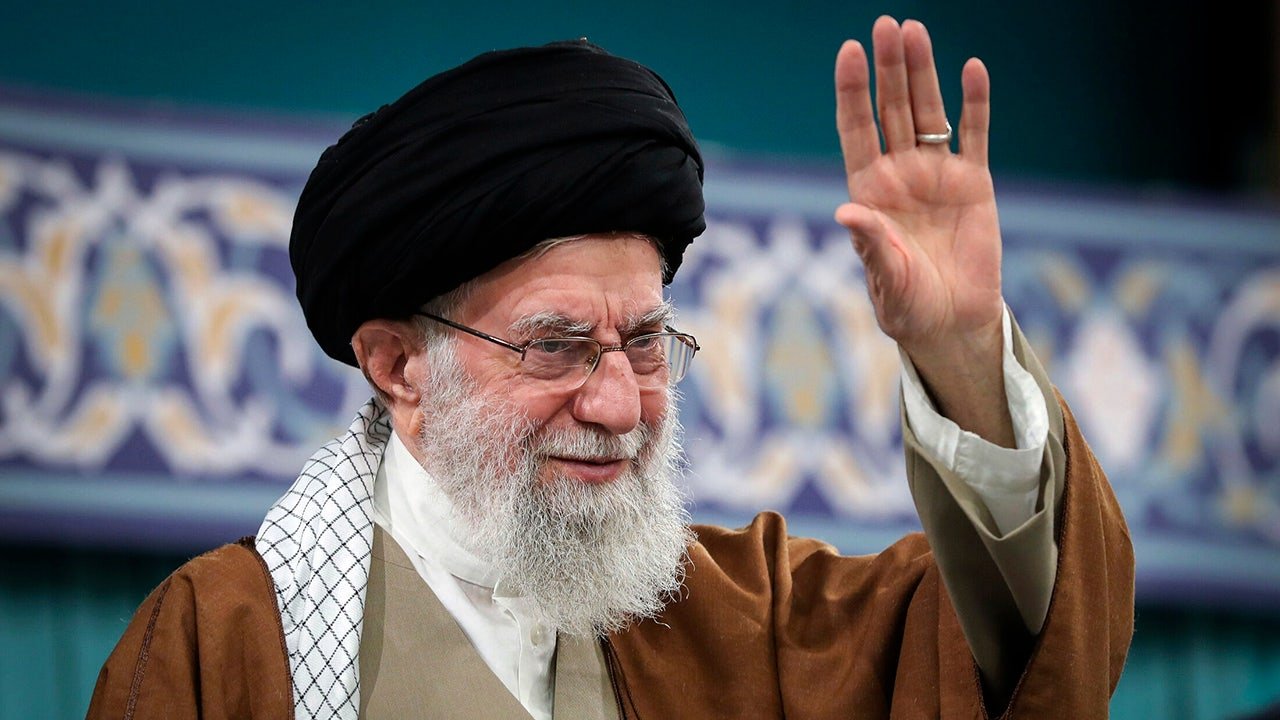
NEWYou can now listen to Fox News articles!
Iran said it will hold talks with Russia and China on Tuesday in an attempt to circumvent U.N. snapback sanctions as the deadline for a nuclear agreement looms.
«We are in constant consultation with these two countries to prevent activation of the snapback or to mitigate its consequences,» Foreign Ministry spokesman Esmail Baghaei said during a Monday press briefing, reported Iran International. «We have aligned positions and good relations.»
Both China and Russia are signatories of the 2015 Joint Comprehensive Plan of Action (JCPOA), an agreement that seemingly failed to end Iran’s nuclear ambitions following the U.S. withdrawal from the deal under the first Trump presidency in 2018 and the subsequent nuclear advances Tehran made.
Chinese Foreign Minister Wang Yi stands with Russian Deputy Foreign Minister Sergey Ryabkov and Iranian Deputy Foreign Minister Kazem Gharibabadi, before a meeting regarding the Iranian nuclear issue on March 14, 2025, in Beijing. (Pool via Reuters)
IRAN VOWS RETALIATION IF UN SECURITY COUNCIL ISSUES SNAPBACK SANCTIONS ON ANNIVERSARY OF NUCLEAR DEAL
The news of the impending meeting comes one week after France, Germany and the U.K. announced they would enforce snapback sanctions on Tehran if it fails to enter into a new nuclear agreement by the end of August.
What would need to be included in a new nuclear deal remains unclear and Iran has not yet renewed nuclear negotiations with the U.S. after Washington levied significant strikes against its top atomic facilities last month in coordination with Israel.
The snapback mechanism was reserved under the JCPOA and allows any signatory of the agreement to recall stiff international sanctions on Iran to be enforced by all 15 members of the United Nations Security Council – including Russia and China – if Tehran is determined to have violated the terms of the 2015 deal.
Since the first Trump presidency, the U.S. has threatened the use of snapback sanctions, though Washington can no longer call for the re-implementation of the economic tool as it left the agreement – a decision determined by the U.N. and the other JCPOA signatories.
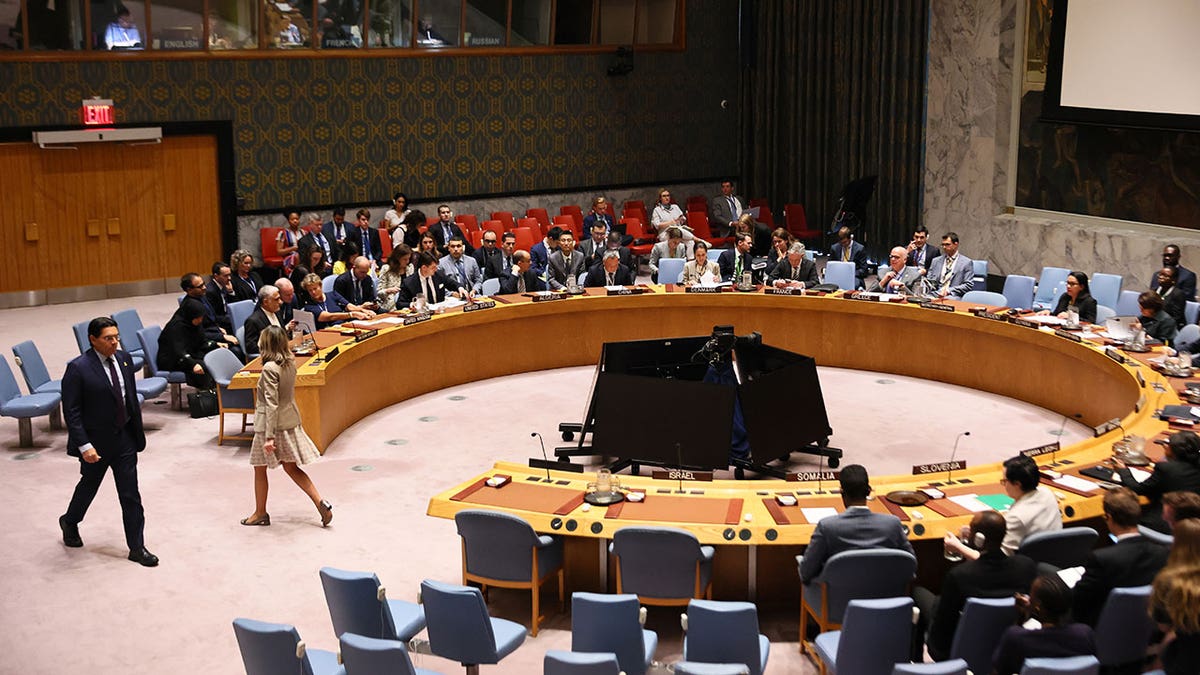
The Security Council meets at United Nations headquarters on June 13, 2025, in New York City. (Michael M. Santiago/Getty Images)
IRAN FACES AUGUST DEADLINE TO ACCEPT COMPREHENSIVE NUCLEAR DEAL OR FACE RENEWED UN SANCTIONS
But top D.C. officials, like Secretary of State Marco Rubio, have continued to encourage European allies to use this tool to push Iran to cease nuclear development.
Iran is also set to hold talks with France, Germany and the U.K. – an alliance also known as the E3 – this Friday, though the window to secure a new nuclear deal is closing despite years of repeated attempts.
«Snapback at the UNSC remains, not just the Trump administration’s, but the international community’s most powerful political and diplomatic tool against the Islamic Republic of Iran’s nuclear program,» Behnam Ben Taleblu, Iranian expert and senior director of the Foundation for Defense of Democracies’ Iran program, told Fox News Digital.
«Snapback and a restoration of older, tougher UNSC resolutions that contain arms export prohibitions, missile testing prohibitions, as well as a panel of experts to monitor sanctions compliance, will actually magnify the political and military dividends that the U.S. and Israeli strikes have given,» he added.

A banner depicting Ayatollah Ali Khamenei is placed next to a ballistic missile in Baharestan Square in Tehran, Iran, on Sept. 26, 2024. (Hossein Beris/Middle East Images/AFP via Getty Images)
CLICK HERE TO GET THE FOX NEWS APP
Security experts have been sounding the alarm for months that it will take roughly six weeks for U.N. sanctions to be enforced, largely due to procedural reasons, and the ability to enforce snapback sanctions under JCPOA terms will expire on Oct. 18.
Ben Taleblu also warned that these intense sanctions on Iran could instigate further security threats to the West when it comes to Tehran’s nuclear program, as it could prompt Iran to leave other major international nuclear agreements like the Treaty on the Non-Proliferation of Nuclear Weapons (NPT).

 POLITICA2 días ago
POLITICA2 días agoJuan Carlos Maqueda defendió la condena contra Cristina Kirchner: “Hay una sensación de que se hizo Justicia y que no hay impunidad”

 ECONOMIA3 días ago
ECONOMIA3 días agoAlarma por el dólar: la volatilidad se mantiene, pese a las medidas urgentes de Caputo

 POLITICA23 horas ago
POLITICA23 horas agoExpulsada del Gobierno, Victoria Villarruel empieza a tomar distancia, pero no tiene proyecto político para este año

